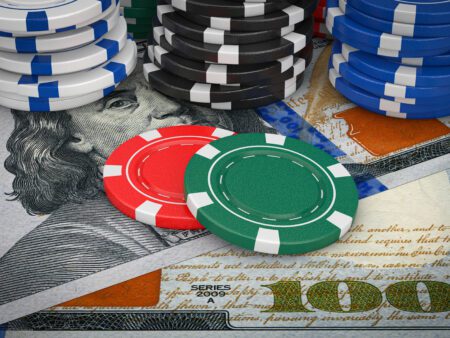Whether you’re a seasoned player or just starting, enhancing your poker skills is crucial. Discover basic and advanced poker strategies to level up your game.
Are You a Poker Prodigy? Test Your Skills and Learn New Tactics
Are you prepared for the ultimate test of skill, strategy, and emotional control? Yes, we’re talking about poker. A classic game that has enthralled generations of gamblers. Whether you’re a seasoned veteran or a budding player just starting your journey, it’s crucial to continuously evolve your strategic depth.
Now, you might ask, how do you become a poker prodigy? It’s a combination of mastering basic poker strategies, adopting advanced tactics, and understanding the intricate psychology of the game. Keep reading as we delve into the nuanced world of poker, designed to equip you with the strategies to potentially increase your odds at the table.
Mastering Basic Poker Strategies
The first step to becoming a poker prodigy is mastering the fundamentals. Many players underestimate the importance of grasping the basic strategies before moving onto complex tactics. Let’s focus on three key aspects – Starting Hand Selection, Understanding Poker Odds, and Position.
Starting Hand Selection: Knowing which hands to play right from the start can make or break your game. Although the best starting hands depend on the specific poker variant you’re playing, a good rule of thumb is generally to stick to strong hands like high pairs and high-card combinations.
Understanding Poker Odds: Poker is a game of probabilities. Understanding the pot odds (the ratio of the current size of the pot to the cost of a contemplated call) and the card odds (the probability that you will draw certain card/s) can give you an edge over players who play based on intuition alone.
Position: Where you sit at the table impacts your game more than you think. Being in a ‘late’ position (getting to act last) is generally advantageous as it provides you the opportunity to observe other players’ decisions before making your own.
Adopting Advanced Poker Tactics
Once you’re confident with the basics, it’s time to sharpen your skills with advanced strategies. Here we delve into concepts like Bluffing, Trapping, and Changing Gears.
Bluffing: A skillful bluff can be a game-changer in poker. It’s an advanced tactic that involves high-risk, high-reward situations. The aim is to trick your opponents into thinking you have a better hand than you actually do. But remember, successful bluffing requires careful consideration of your opponents, timing, and betting patterns.
Trapping: This strategy involves playing as if you have a weak hand when you in fact hold a strong one. The objective here is to coax your opponents into betting more, thereby increasing the pot size, which you can claim with your strong hand.
Changing Gears: Unpredictability can be an asset in poker. Changing your playing style in the middle of a game can confuse your opponents and keep them guessing about your moves.
Understanding the Intricate Poker Psychology
Poker isn’t just about the cards you hold; it’s also a mind game. Understanding your opponents – their habits, tells, and responses under pressure – can give you a significant advantage. The ability to conceal your own intentions while discerning those of others is the hallmark of a poker prodigy.
Do you find your opponents acting more confident? Are they taking longer than usual to make their moves? These could be signs that they’re bluffing. Observing these psychological cues can provide invaluable insights, helping you turn the tide of the game – provided you can use that information wisely. Remember: The best poker players aren’t just masters of strategy; they’re also masters of manipulation.
Continuously Evolve Your Game
Mastering poker is about continuously refining and adapting your strategies. There are always new things to learn and novel tactics to experiment with. Bear in mind that like every casino game, the house always has an edge. However, a sound poker strategy can help tilt the odds slightly in your favor, giving you a competitive edge.
It might be beneficial to branch out and familiarize yourself with strategies for other casino games too. For instance, if you enjoy card games like poker, you might find our guide to Blackjack Winning Strategies of interest. Expanding your arsenal of skills can only make you a more experienced and versatile player.
Conclusion
Are you a poker prodigy in the making? Remember, becoming a great poker player requires patience, experience, and a willingness to learn. Master your strategies, understand the psychology of the game, and adapt to always stay one step ahead. Most importantly, remember to gamble responsibly, knowing when to fold is just as essential as knowing when to call.
So, are you ready to test your skills and learn new tactics? Let’s see you in action at the poker table! Until then, keep honing your skills and never stop learning.
Do you have any favorite poker strategies or memorable poker moments? We’d love to hear about them in the comments section below!










